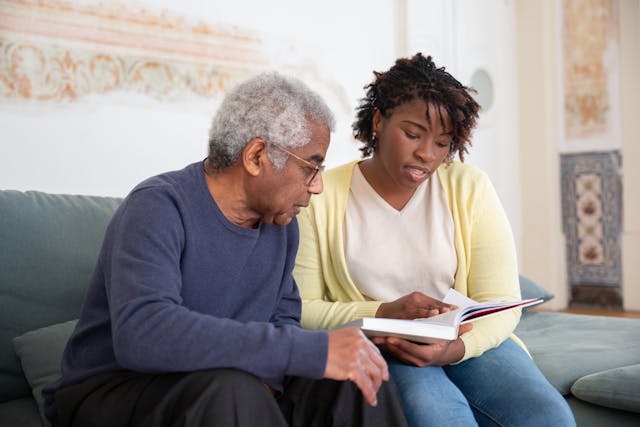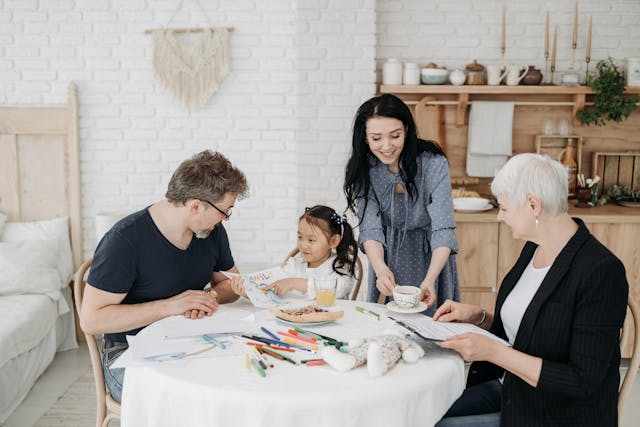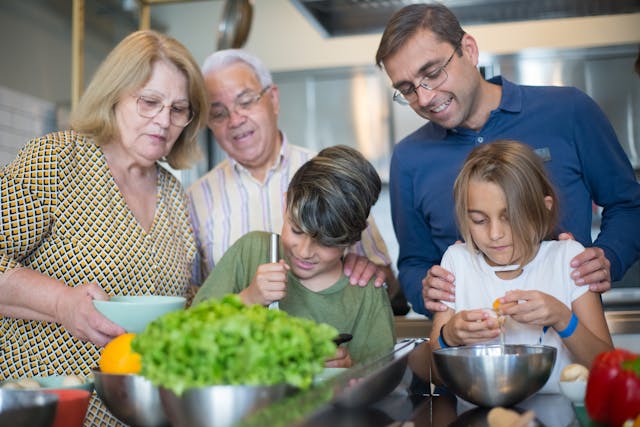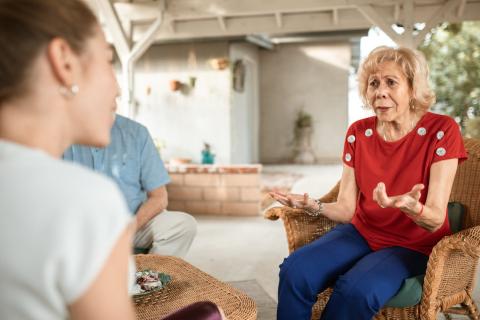Intergenerational relationships are meaningful connections between people of different ages. These relationships often form between seniors, adults, and younger generations, both inside and outside the family. They are built on understanding, care, and shared experiences.
In today’s fast-moving world, families often live far apart. Many older adults spend less time with younger people than in the past.
Technology also changes how people connect, sometimes creating distance between generations. Building intergenerational relationships helps close that gap.
It reminds us that wisdom, patience, and kindness are timeless values that never grow old.
For seniors, these relationships bring joy, purpose, and a deep sense of belonging. Whether through storytelling, teaching a skill, or simply listening, every shared moment becomes a bridge between generations.
Why Intergenerational Relationships Matter
Human connection is essential at every stage of life. For seniors, intergenerational relationships provide emotional, mental, and social benefits that go far beyond companionship.

Here are some reasons why they matter:
- They keep the mind active. Conversations with younger people introduce new ideas and challenges that stimulate memory and curiosity. For example, learning about modern technology or new hobbies can keep the brain sharp and engaged.
- They build emotional strength. Many older adults feel happier and more confident when they have meaningful contact with younger people. Sharing experiences helps reduce loneliness and reminds seniors that their voices still matter.
- They create understanding. When generations talk openly, they learn to respect and appreciate different ways of thinking. Young people gain patience, while seniors gain insight into today’s world.
- They pass on wisdom. Seniors carry valuable lessons from life. By sharing stories about hard work, kindness, and resilience, they pass on wisdom that helps younger generations grow stronger.
These benefits work both ways. While older adults share guidance and stability, younger people bring energy, optimism, and fresh perspectives. Each generation gives something the other needs.
The Power of Everyday Moments
Building intergenerational relationships does not require big events or special occasions. The most powerful moments often happen in simple, daily activities.

Here are a few examples:
- Story Circles: Grandparents or seniors share stories from their past, while young people listen and ask questions. These moments spark curiosity and laughter.
- Skill Exchange: Seniors teach practical skills such as cooking, sewing, or gardening. In return, younger people can help with smartphones, computers, or online activities.
- Community Volunteering: Working together in food banks, libraries, or gardens helps build teamwork and respect across ages.
- Learning Projects: Some schools and senior centers run programs where students and older adults learn side by side. Both groups enjoy new knowledge and companionship.
- Family Traditions: Cooking together, playing music, or celebrating holidays as a family keeps traditions alive and strengthens bonds.
These small gestures remind us that connection does not need to be complicated. Time, presence, and genuine interest are enough to make every generation feel valued.
How to Build Stronger Intergenerational Connections
If you want to nurture or start new intergenerational relationships, here are some simple ways to begin:

- Join community programs. Many local centers and organizations offer intergenerational activities. These programs give seniors a chance to meet young people in a friendly, supportive environment.
- Volunteer or mentor. Sharing your skills with students or young adults is a rewarding way to give back. You can teach life lessons, career advice, or practical experience.
- Stay curious. Ask questions and be open to learning from younger generations. Every conversation is a chance to learn something new.
- Use technology to stay in touch. Video calls, social media, or online groups can help maintain relationships when family members live far away.
- Share stories and memories. Talking about your past helps younger people understand family history and cultural roots. It also strengthens your own sense of identity.
The goal is not perfection, but participation. Every small effort to connect builds understanding and warmth between generations.
Examples of Intergenerational Activities
Intergenerational activities can happen anywhere; at home, in the community, or even online. They give people of all ages a chance to learn, laugh, and grow together.

- Cooking Classes: Seniors and youth cook family recipes side by side, sharing traditions and flavors.
- Gardening Projects: Planting and caring for gardens together encourages teamwork and patience.
- Art or Music Programs: Painting, singing, or playing instruments connects generations through creativity.
- Reading Buddies: Older adults read to children, helping them learn language skills while enjoying companionship.
- Cultural Exchange: Sharing stories about local customs, festivals, or songs teaches pride and appreciation for heritage.
These activities show that connection is possible anywhere, anytime. All it takes is a little time and a willingness to share.
The Benefits Go Both Ways
The best part of intergenerational relationships is that they enrich both sides equally. Seniors gain joy, purpose, and self-worth. Younger generations gain perspective, empathy, and emotional maturity.
Communities that support intergenerational connection often see stronger family bonds and greater social harmony. Schools, senior centers, and local programs that encourage these interactions report happier participants and fewer feelings of isolation.
When generations come together, respect and kindness grow naturally. It becomes easier to see that age is not a barrier, but a bridge that connects experiences and dreams.
Conclusion: A Gift That Connects Generations
Intergenerational relationships remind us of the values that never fade: love, patience, and the human need for connection.
For seniors, these relationships bring meaning to daily life and help them stay active in body and mind. For younger people, they offer guidance and wisdom that no school can teach. Together, they build a world where everyone feels seen, valued, and understood.
Read Also:
Growing older does not mean growing apart from life. By nurturing intergenerational relationships, we create a future where generations support one another with care and respect.
Every shared story, smile, and moment of understanding is a gift, one that connects hearts across time.











